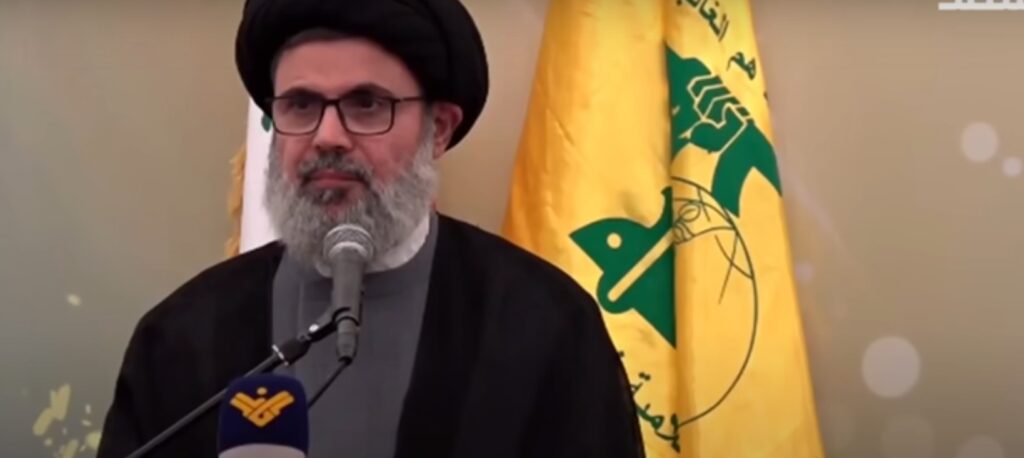The timing of the election for a new Secretary General remains uncertain, with Hezbollah’s top figures fearful of assuming the position due to the potential threat of being targeted by Israel.
Hezbollah in Shock After Nasrallah’s Assassination
Sources report that Hezbollah remains deeply shaken by the assassination of Nasrallah and his senior military commanders in an Israeli operation.
Compounding the shock are continued Israeli strikes, including an attempt to eliminate Hashem Safi al-Din, the head of Hezbollah’s Executive Council and a relative of Nasrallah, who was expected to succeed him.
While Israeli intelligence suggests Safi al-Din was killed in an airstrike on Hezbollah’s intelligence headquarters in Beirut on October 3, neither Israel nor Hezbollah has officially confirmed his death.
Fleeing to Yemen?
Sources in Yemen report that senior Hezbollah leaders in Lebanon and Syria are contemplating relocating to Yemen to join the Houthis, fearing that staying in Lebanon leaves them vulnerable to Israeli attacks.
These officials believe the IDF will continue targeting them as part of its broader effort to dismantle Hezbollah’s military infrastructure.
Resistance to Leadership Positions
Ebrahim al-Sayed, head of Hezbollah’s Political Council and considered the third-ranking official within the organization, has refused the position of Secretary General.
He reportedly fears for his life and has expressed a desire to pursue religious studies in Iran instead.
The newspaper Asharq Al-Awsat reported on October 6 that Hezbollah has decided to delay the appointment of a new Secretary General, opting instead for the current “collective leadership” structure due to ongoing Israeli assassinations of its senior members.
Israel’s Ongoing Campaign Against Hezbollah
Israel continues to target Hezbollah’s leaders, military commanders, and missile arsenals, while simultaneously conducting ground operations in southern Lebanon aimed at destroying the group’s terrorist infrastructure near the Israeli border.
Israeli success is attributed to precise intelligence and deep infiltration into Hezbollah’s upper ranks.
A Leadership Void
Hezbollah is struggling to fill the leadership void left by Nasrallah’s death.
According to Lebanese political sources, the group is currently being led by a “collective leadership” or “advisory council,” likely composed of members of Hezbollah’s Shura Council.
This supreme council oversees five key bodies: the Executive Council, Legal Council, Parliamentary Council, Political Council, and Jihad Council.
The Shura Council members include:
- Sheikh Naim Qassem, Hezbollah’s Deputy Secretary General
- Mohammed Ra’ad, head of Hezbollah’s parliamentary faction
- Mohammed Yazbek, head of the Sharia Council
- Hussein Khalil, Nasrallah’s political advisor
Senior Israeli security officials believe these leaders are also at risk of assassination.
Iran’s Influence and Future Changes
This leadership structure will remain in place until Hezbollah’s Central Council can elect a new Secretary General.
Iran plays a significant role in determining the eventual successor, but the question remains as to who will survive the wave of Israeli assassinations.
According to Israeli security sources, the Iranian leadership is frustrated with Hezbollah’s conduct in the ongoing conflict with Israel, particularly the extent of Israeli intelligence infiltration.
Tehran is reportedly planning major changes in Hezbollah’s leadership when the time is right.




